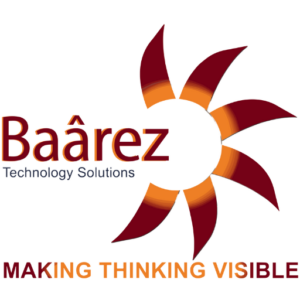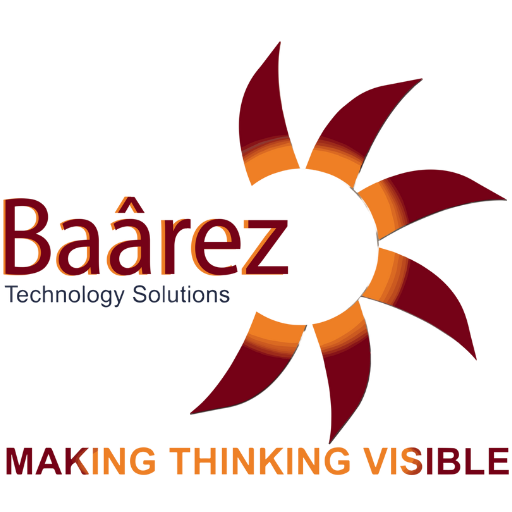
Microsoft has developed Dynamics Business Central, which is a cloud-based ERP solution as part of the modern suite of business management applications called Microsoft Dynamics 365. This solution is primarily designed to cater to the needs of small to medium-sized businesses (SMBs). The application offers a range of features to manage core business tasks such as financial management, inventory management, project management, and warehouse management. Additionally, Dynamics 365 Business Central can be integrated with third-party applications like Mobile WMS by Tasklet Factory, enabling users to leverage the benefits of multiple tools and software providers. Moreover, this software is capable of seamless integration with other Microsoft products such as Office 365.
On the other hand, SAP Business One is an on-premises ERP solution developed by SAP (Systems, Applications, and Products in Data Processing). Similar to Dynamics 365 Business Central, SAP B1 is designed for SMBs and offers functionalities such as monetary management, inventory management, and project management.
However, SAP Business One is a more complex yet powerful solution than Microsoft’s Business Central, making it a preferred choice for organizations with a larger workforce or those with more specific business requirements, such as managing globally expanded manufacturing units.
It’s important to understand the key differences between these two business applications. So, let’s dive in and take a closer look.
Table of Contents
ToggleKey differences between features of Dynamics 365 Business Central and SAP Business One
Both Dynamics 365 Business Central and SAP Business One are enterprise resource planning (ERP) systems developed to help mid-sized businesses manage their financials and supply chain, and automate tasks like accounting, invoicing, and other repetitive tasks. However, there are some key differences between these two systems when it comes to features.
Financial Management:
Dynamics 365 Business Central has a powerful economic management module, including advanced financial reporting and budgeting capabilities, making it suitable for businesses of varying sizes. On the other hand, SAP Business One has more limited financial management capabilities, and it is better suited for small businesses.
Inventory Management:
Both systems offer similar inventory management capabilities, but Dynamics 365 Business Central has more advanced functionality for tracking inventory across multiple locations and managing stock levels.
Sales Management:
Dynamics 365 Business Central offers more advanced sales management capabilities, including built-in customer relationship management (CRM) functionality and integration with apps like Sales Hub for better sales management. Meanwhile, SAP Business One has more limited sales management capabilities and is more appropriate for small businesses.
Manufacturing:
Dynamics 365 Business Central is the better choice for manufacturing since it includes advanced production planning and scheduling capabilities. SAP Business One has more limited manufacturing capabilities and is geared towards powering up small and mid-sized businesses.
Customization:
Dynamics 365 Business Central has more advanced and easy customization capabilities, with a wide range of built-in tools, add-ons, and services for customizing and extending the system. SAP Business One has more limited customization capabilities and is better suited for companies that have a small user base.
Deployment:
Microsoft’s Business Central is a full cloud ERP system, while SAP B1 can be deployed on-premises or in the cloud. However, Dynamics 365 Business Central offers the option of on-premises or hybrid implementation, providing greater flexibility.
Scalability:
Dynamics 365 Business Central is a cloud ERP built on Microsoft Azure, making it more scalable and capable of handling a large volume of data chunks and transactions. On the other hand, SAP Business One is more suitable for small-sized businesses that generate a limited amount of data. It’s important to note that Dynamics 365 Business Central can handle complex business scenarios, while SAP Business One is more suited for moderately complex business operations for small-sized businesses.
User Interface of Dynamics 365 Business Central
Business Central has an easy and convenient UI (User Interface) with drag-and-drop components to customize your user role page.

User Interface of SAP Business One
Though SAP B1 has a configurable UI, it is not at the level of Dynamics 365 Business Central. SAP Business One’s UI is more conventional and not modern. While, with Business Central, you can tailor the UI the way you want.

The cost of acquiring Dynamics 365 Business Central and SAP Business One varies depending on the edition you select and the number of users for which you need a license.
Here are the pricing models for both systems:
Dynamics 365 Business Central: Pricing & Licensing
Business Central offers two editions: Essentials and Premium.
The Essentials edition is intended for small businesses, and the license cost ranges from $70 to $100 per user per month. Meanwhile, the Premium edition is designed for large multinational companies or businesses that operate internationally, with license costs ranging from $100 to $190 per user per month.
Business Central also offers a Team Member license, which is priced at $8 per user per month, providing limited system functionalities.
SAP Business One: Pricing & Licensing
SAP Business One’s pricing is a bit more complex than Business Central, with different modules and licensing models.
The Starter Package, which includes only the basic functionalities, starts at $1,500 for one-time payment per user. Meanwhile, the Professional package, which provides more features, starts at $3,200 for one-time payment per user.
SAP also offers a licensing model based on a subscription, with the license cost ranging from $94 to $180 per user per month, depending on the package and number of users. There’s also a named user license, which ranges from $1,666 to $3,200 per user.
It is important to note that Dynamics 365 Business Central requires separate licensing for PowerApps, Power Automate, and Microsoft Power BI – a popular data visualization tool.
SAP Business One is available in three editions: Starter, Professional, and Premium, and the pricing varies depending on the specific edition, the number of users, and the type of customization required.
For the Starter edition, which is focused on small businesses, the cost is $56 per user per month. The Professional license, designed for mid-sized businesses, costs $108 per user per month. The Premium edition of SAP B1, which is designed for large international businesses and groups, can range from $150 to $200 per user per month. If additional functionalities are required, an extra $20 per user per month is charged.
It’s always best to contact a cloud solution partner (CSP) or a Microsoft Gold Partner like Dynamics Square for accurate and up-to-date pricing information.
SMB-centric ERP systems, SAP Business One (SAP B1), and Microsoft Dynamics 365 Business Central, can be integrated with other software and customized to fit unique business needs. However, there are some differences between these systems when it comes to integration and customization capabilities:
SAP Business One
SAP B1 utilizes the software architecture of SAP HANA, a platform known for its scalability and flexibility. As a result, SAP B1 provides a wide range of integration options with various third-party software, including Dynamics CRM, eCommerce, and accounting systems. Furthermore, SAP B1’s flexible architecture enables business-centric customization and custom development.
Microsoft Dynamics 365 Business Central
Dynamics 365 Business Central is built on Dynamics NAV’s architecture, with the modern capabilities of the popular Microsoft Dynamics 365 platform. It seamlessly integrates with other Microsoft products, such as Office 365 and Power BI, and offers a range of third-party software integration options. While Dynamics 365 Business Central’s third-party integrations may not be as extensive as SAP B1, the system works smoothly with other platforms. Dynamics 365 Business Central is a fully cloud-based ERP solution with easy customization capabilities to utilize the Power Platform to create customizations, automate business processes, and build business operation-centric applications
Both ERP systems have their strengths and weaknesses regarding integration and customization. SAP B1 is considered more flexible in terms of integration with a wider range of third-party software, while Dynamics 365 Business Central is more versatile in getting tightly integrated with other Microsoft products and third-party platforms.


